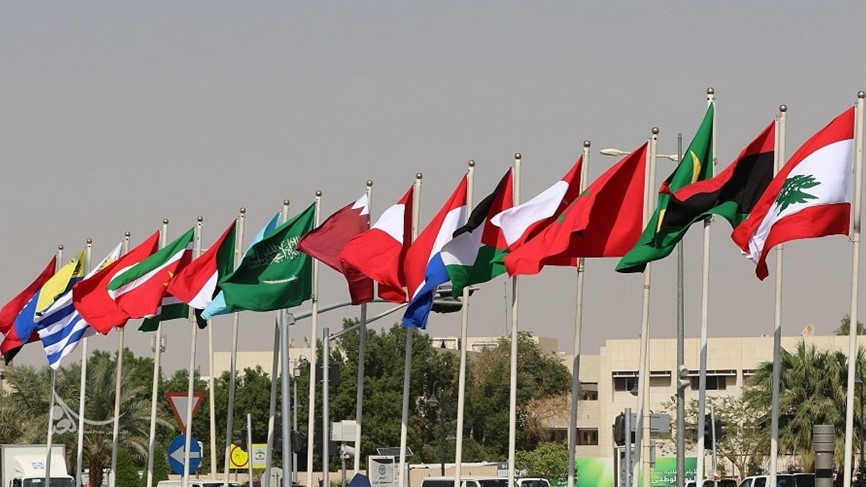Increased sanctions on Iran due to its support for proxy forces, its anti-West policies, and heightened threats from Israel, suggest that peace with Arab states could lead to the country’s peace and stability.

Escalating Threats to Iran’s Regime
Deaths of Iran’s top military regional commanders, Ayatollah Khamenei’s life in intense danger, and increased sanctions from the West portend that the country is facing the greatest risk and threats in history. The disappearance of Ismael Qaani, the Iranian spy chief, has prompted speculations that either he has been killed by the country’s rivals or is arrested by Khamenei’s regime over his intelligence failures inside the state and the whole region.
Iran has a history of backing various transnational Shiite paramilitary armies and proxies across the region – including Hezbollah in Lebanon, Houthis in Yemen, and Al-Hash Al-Shaabi in Iraq. By supporting these proxies, Iran aims to extend its regional influence and bolster the Ayatollah regime. However, this Iranian support to different resistant groups and proxies has not only endangered Ayatollah Khamenei’s life but has also jeopardized the country’s regional interests.
Although the prime intention behind creating this “axis of resistance” was to counter the US-backed evil axis, Iran also used them to subvert governments in Yemen, Syria, Lebanon, and Iraq – which helped the country in converting these nations into proxy frontline states against the hostile Arab and pro-Western nations. Iran holds significant influence in these states. Hezbollah and Houthis are considered stronger than the de jure governments in Lebanon and Yemen, respectively.
Hezbollah’s Hassan Nasrallah and Iran’s Ayatollahs have long been propagating an anti-West narrative. Both of them are known for their anti-America and anti-Israel stance. However, this narrative has put both the parties and their interests in jeopardy. Israel is continuously bombing Beirut, indiscriminately, under the pretext of eliminating Hezbollah. It has also killed numerous Hezbollah and Iranian leaders. Ismail Haniyeh, the Political Bureau Chief of Hamas, has also been assassinated in Iran’s capital, Tehran, by Israel. In addition to this violation of Iran’s sovereignty, it attacked the Iranian consulate in Damascus, Syria – violating international law.
Iran and its regional proxy, Hezbollah, provided Benjamin Netanyahu the pretext to target Iran directly. He has long been seeking to expand the war to the whole Middle Eastern region and involve Iran directly in this war to regain support from the Western population. Moreover, Netanyahu’s survival relies on prolonging the ongoing war. Therefore, Iran’s direct involvement in this war would serve all his ambitions. After the recent limited Iranian retaliation on Israel’s military bases, the Netanyahu administration is eager to attack Iran’s oil, military, civilian, and nuclear installations. However, the prudent policies of the Iranian regime and pressure from world leaders have restrained the warmongering Israeli government from embarking on any massive assault on Iran.
Russia and North Korea have proved to be Iran’s trustworthy allies. Russia supports Iran militarily to defend against any unprovoked Israeli or US attack. Reports suggest that Moscow has sent an air defense system to Iran after the latter’s recent escalation with the Zionist state. However, amidst the escalating situation in the Middle East and growing internal threats – as the US and its allies have long planned to create internal chaos against the Iranian theocratic regime, the country needs to expand its diplomatic clout.
Path to Diplomacy
Iran should attempt to repair its diplomatic ties with the Arab world. Both, the Arab states and Iran, hold significant influence in the Middle East. The two sides are not natural rivals. They need to realize that the Western lobby, especially the US and Israel, have pitched them against each other by divide and rule policy. Both sides feel threatened by each other. There is a widespread belief in the Gulf States that Iran could use its nuclear arsenals against them if it achieves nuclear power. Iran’s irredentist claims over Bahrain’s territory, its support of Shiite militia in Yemen, and the threats of occupation of the UAE have also weathered an atmosphere of hostility between the two sides.
On the other hand, Iran views the Arab states as proxies of the United States. The Abraham Accords have further strengthened this Iranian narrative. Both sides need to shun all the historic rivalries to regain their influence over the Middle Eastern region. Collective diplomatic efforts by the Arab states and Iran can prove lucrative for both sides and can strengthen the Palestinian cause. Much of the resources from either side are wasted in countering each other’s proxies. Iran and the Arab states could use their energies in the right direction only by cooperating. Cordial relations with the Arab states can help Iran in revitalizing its economy and diplomatic strength. BRICS membership of Iran, KSA, and the UAE provides a significant opportunity for these nations to foster dialogue and cooperation. Moreover, China and Russia, being the new superpowers of the world, can play a significant role in bringing the two sides closer and avoiding the trap of the Western trap.
Taut Bataut – is a researcher and writer that publishes on South Asian geopolitics, exclusively for the online magazine “New Eastern Outlook”
